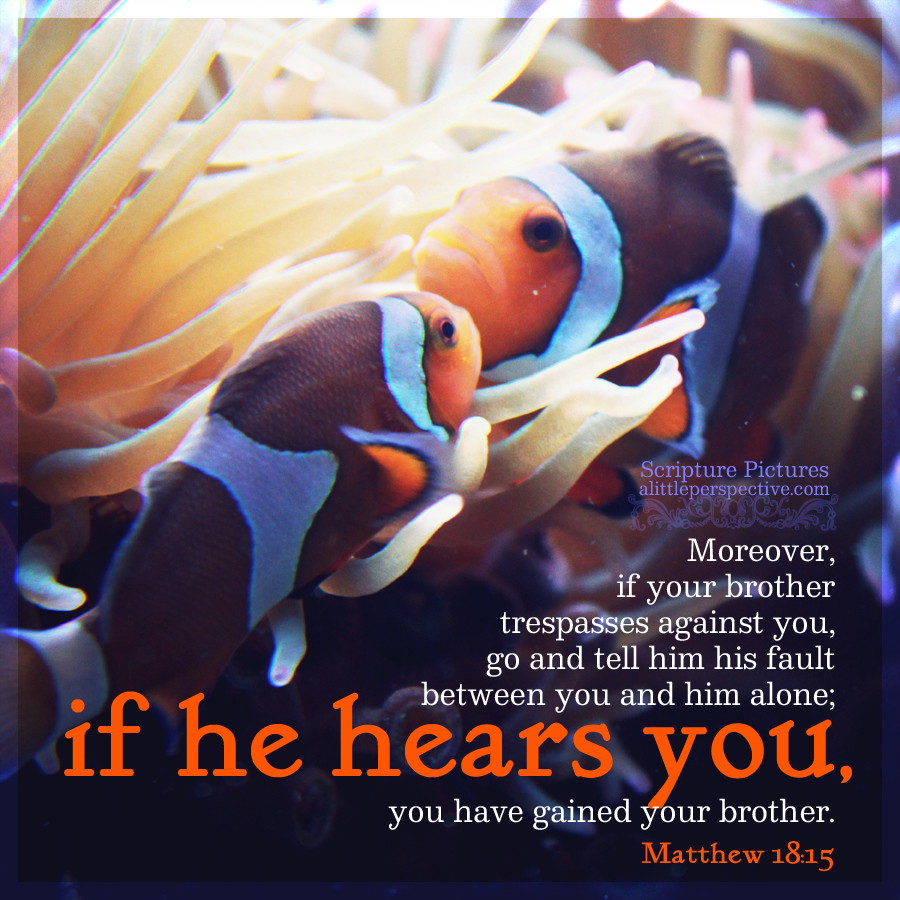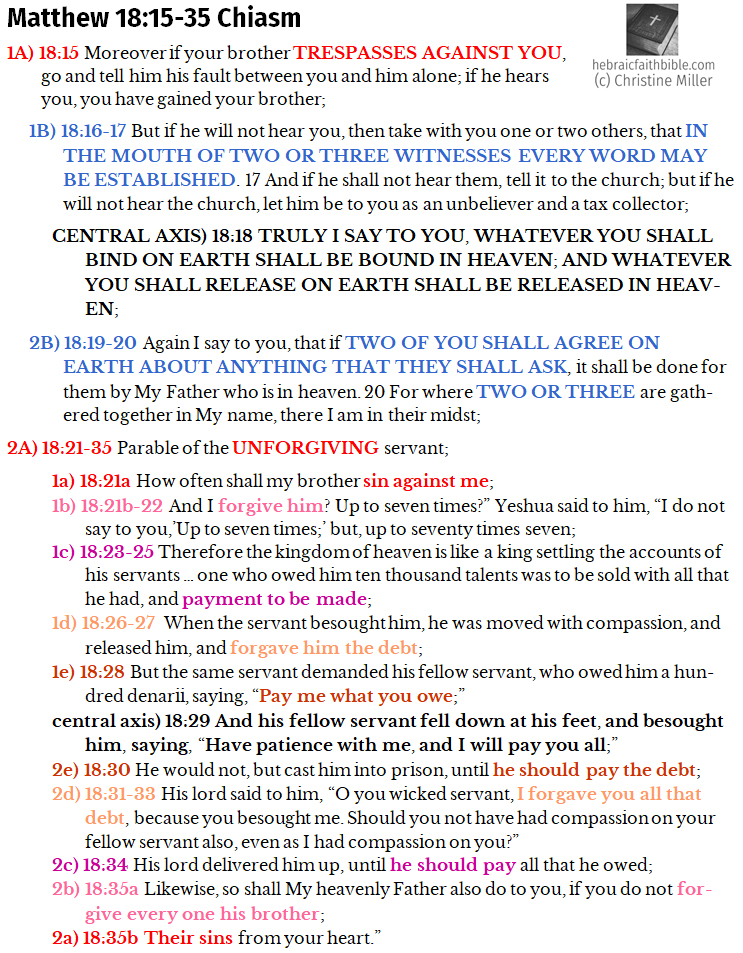Read Matthew 18 here (text coming …) or at Bible Gateway.
This is the Chiastic Structure Teaching Tool for this chapter:
Truly I say to you, whatever you shall bind on earth shall be bound in heaven; and whatever you shall loose on earth shall be loosed in heaven. Mat 18:18
The central axis is in the context of trespasses (1A pair) and forgiveness of trespasses, or debt (2A pair).
Then the lord of that servant was moved with compassion, and loosed him, and forgave him the debt. Mat 18:27
Although two different Greek words are used to loose on earth, in Mat 18:18, and to loose from debt, in Mat 18:27, they both have the same meaning.
“To loose” in Mat 18:18, is from the Greek Root Word Strong’s G3089 λύω lyo, meaning, “to set free, to loose anything fastened with chains; to release the bond of matrimony between husband and wife.”
“To release” in Mat 18:27, is from the Greek Root Word Strong’s G630 ἀπολύω apolyo, meaning, “to set free; to release, as a prisoner in chains; to dismiss (as a divorce).”
“To bind” in Mat 18:18, is from the Greek Root Word Strong’s G1210, δέω deo, meaning, “to bind; to fasten with chains.”
To loose, then, is to release from prison, and to bind is to cast into prison. When we forgive someone their sins against us, that they have done here on earth, we become jail-breakers in heaven, in the spiritual world. When we retain someone’s sins against us, that they have done here on earth, we become jailors in the spiritual world.
Now who are we jailing, or jail-breaking, those who have sinned against us, or us ourselves? The case can be made that it is both. We are to use with our fellow man the measure that we want used with us (Mat 7:2), so if we want to be released from our own sins, let us quickly release others from theirs.
And that is the point of the parable. The unforgiving servant was free of debt, or loosed, but when he refused to likewise set his fellow servant free of debt, then he retained his debt, and his bonds.


















Leave a Reply